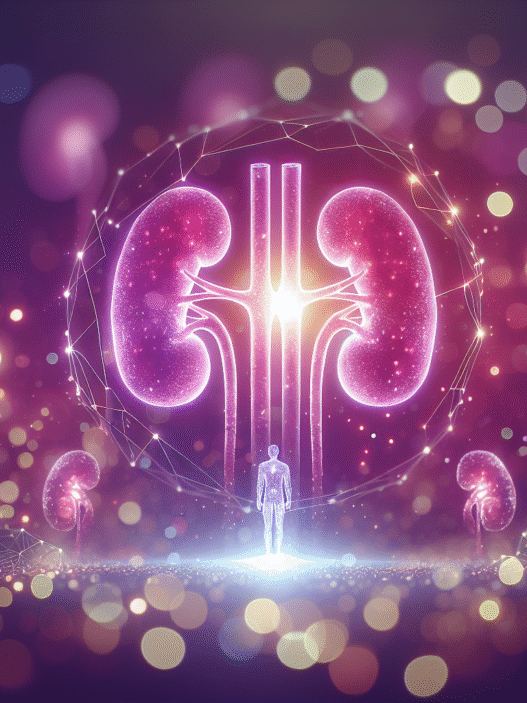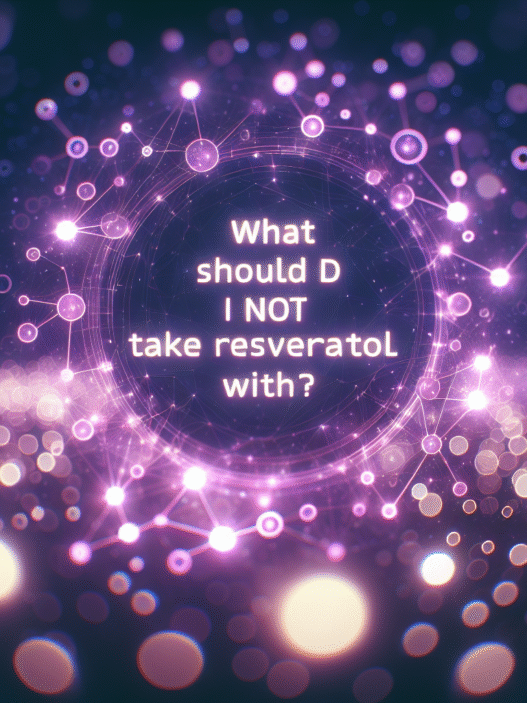The Power of Resveratrol
Understanding Resveratrol
Resveratrol is a natural compound found in over 70 plant species, prominently in grapes. It is often linked to the health benefits associated with moderate wine consumption, commonly noted in discussions about the “French Paradox.” This compound is a type of phytoalexin, produced by plants in response to stressors like UV radiation and fungal infections. Its primary role is to protect plants from environmental challenges, but it also has significant implications for human health. Resveratrol possesses various properties that make it a subject of research in the fields of cardioprotection, neuroprotection, and potential cancer prevention. Notably, studies indicate that resveratrol exhibits antioxidant, antitumor, and anti-inflammatory activities.
Mechanisms of Action
The mechanisms through which resveratrol benefits health are multifaceted. Primarily, it modulates several intracellular signaling pathways that regulate cell survival and apoptosis, contributing to its protective effects against various diseases, including cancer. Resveratrol has shown potential efficacy in tackling different stages of carcinogenesis, which includes initiation, promotion, and progression of tumors (PMC).
Moreover, this compound is known for its cardioprotective properties, helping to safeguard the cardiovascular system from oxidative stress and inflammation. Studies have indicated that resveratrol can positively influence cardiovascular health, potentially enhancing blood flow and reducing levels of bad cholesterol. It also has neuroprotective qualities, making it beneficial for brain health, particularly in protecting against neurodegenerative diseases. Resveratrol may also bolster the immune system and possess antimicrobial activities, adding another layer of potential benefits (PubMed Central).
The pharmacokinetics of resveratrol present some limitations due to its rapid metabolism and low bioavailability, which may impact its effectiveness in therapeutic applications. Therefore, further research is essential to optimize its use and understand its full range of health benefits (PubMed Central). For individuals considering incorporating resveratrol into their health regimen, exploring its various sources and potential supplements could be a worthwhile journey in promoting longevity and overall wellness. For more information on resveratrol sources, visit our article on resveratrol sources.
Health Benefits
Resveratrol has garnered attention for its potential health benefits, particularly in promoting cardiovascular health, brain function, and diabetes management. These advantages make it a key component for those interested in longevity and anti-aging.
Cardiovascular Health
Resveratrol plays a vital role in preventing and managing cardiovascular diseases. It helps protect against blood vessel damage, lowers cholesterol levels, and aids in preventing blood clots, contributing to improved heart health. This makes resveratrol beneficial for maintaining overall cardiovascular wellness. For more on its impact, see our detailed page on resveratrol benefits.
| Benefit | Description |
|---|---|
| Protects Blood Vessels | Prevents damage and enhances vessel function |
| Lowers Cholesterol | Reduces LDL cholesterol levels |
| Prevents Blood Clots | Decreases the risk of clot formation |
Brain Health
The protective effects of resveratrol extend to brain health as well. It has been shown to slow down age-related cognitive decline and interfere with beta-amyloids, which are crucial to forming Alzheimer’s plaques. Additionally, resveratrol helps protect brain cells from damage, making it a valuable ally for cognitive function. More on this topic can be explored in our section on resveratrol for brain health.
| Benefit | Description |
|---|---|
| Slows Cognitive Decline | Helps maintain cognitive function with age |
| Interferes with Alzheimer’s Plaques | Reduces the buildup of harmful proteins |
| Protects Brain Cells | Guards against cellular damage |
Diabetes Management
Resveratrol shows promising potential in managing diabetes by increasing insulin sensitivity and preventing complications associated with the disease. As an effective antioxidant, it helps mitigate oxidative stress, which can contribute to diabetic complications. For insights into how resveratrol relates to diabetes, visit our page on resveratrol for diabetes.
| Benefit | Description |
|---|---|
| Increases Insulin Sensitivity | Improves body’s response to insulin |
| Prevents Complications | Reduces risk of diabetes-related issues |
| Acts as Antioxidant | Mitigates oxidative stress in the body |
The health benefits offered by resveratrol make it an intriguing subject for those who prioritize longevity and anti-aging. By incorporating this powerful compound into their routine, individuals may support their cardiovascular and brain health, as well as manage diabetes more effectively. For further exploration of resveratrol’s advantages, check out our articles on various resveratrol supplements and resveratrol foods.
Exploring Potential Risks
While the resveratrol health benefits are numerous, it is essential to be aware of potential risks associated with its supplementation. This section covers dosage considerations and possible side effects.
Dosage Considerations
Determining the appropriate dosage of resveratrol can be challenging. Resveratrol supplements lack specific dosage recommendations and are not regulated by the FDA. This uncertainty can make it difficult for users to assess the effectiveness or necessary amounts to consume (WebMD).
Clinical trials have shown mixed results regarding effective dosages. For instance, studies suggest that 150 milligrams of resveratrol can effectively lower systolic blood pressure, while no significant effects were observed on diastolic blood pressure (Medical News Today).
Long-term use also raises concerns, as high doses of 2.5 grams or more per day may lead to adverse effects. Therefore, individuals should consult with healthcare professionals before starting any resveratrol supplementation regimen and refer to detailed guidelines on resveratrol dosage.
| Dosage Level | Potential Effect |
|---|---|
| Up to 150 mg | May lower systolic blood pressure |
| 2.5 g or more | Risk of fever and reduced blood cell counts |
Side Effects
Resveratrol is generally well-tolerated, and long-term clinical trials have not reported major side effects. However, users should remain cautious about potential adverse reactions, especially at higher doses. Possible side effects noted include fever and lethargy, which may occur when consuming elevated amounts of the supplement.
A study also indicated that resveratrol could exhibit cytotoxic effects on normal healthy cells, particularly at concentrations of 10 μM or higher. This raises concerns about its safety as a chemotherapeutic agent and emphasizes the need for further evaluation (PubMed Central).
Individuals considering resveratrol should monitor for any unusual symptoms and discuss their individual health conditions and medications with a healthcare provider, as interactions may occur. For a comprehensive look at possible side effects, view our article on resveratrol side effects.
Resveratrol and Longevity
Resveratrol, a polyphenolic compound found in certain foods, has garnered attention for its potential role in promoting longevity. Research suggests that resveratrol may have significant anti-aging effects, influencing both biological functions and lifespan.
Anti-Aging Effects
Resveratrol has been shown to activate specific genes that prevent age-related diseases and mimic the effects of calorie restriction, which is associated with an extended lifespan in certain animals (Healthline). This compound offers several anti-aging benefits, including:
- Antioxidant Properties: Resveratrol combats oxidative stress, which is a key contributor to aging. By neutralizing free radicals, it helps protect cells from damage.
- Anti-Inflammatory Effects: Chronic inflammation is another factor in the aging process. Resveratrol has been shown to reduce inflammation, thereby contributing to better overall health and possibly enhanced longevity.
- Cognitive Function: Studies indicate that resveratrol supplementation may improve cognitive function in older adults. This effect underscores its potential role in maintaining brain health as one ages (Journal of Alternative and Complementary Medicine).
Impact on Lifespan
The potential impact of resveratrol on lifespan is noteworthy, as it supports the idea that this compound could play a key role in extending life. While animal studies have yielded promising results, human clinical trials present a more complex picture. The variability in patient demographics, dosage, and duration of supplementation can lead to differing outcomes regarding its benefits (PubMed Central).
In essence, research suggests that resveratrol may contribute to increased lifespan and healthier aging through its antioxidant, anti-inflammatory, and neuroprotective properties. These potential longevity-enhancing effects highlight the importance of understanding the full range of resveratrol health benefits.
While more comprehensive studies are necessary to fully understand the effects of resveratrol on human longevity, its potential to promote healthier aging makes it a compound of interest for longevity and anti-aging enthusiasts. For further information on how to incorporate resveratrol into your diet, explore options in resveratrol foods and resveratrol supplements.
Practical Applications
Understanding how to incorporate resveratrol into one’s lifestyle can enhance its health benefits significantly. This section provides insights into food sources rich in resveratrol and guidelines for supplementation.
Food Sources
Resveratrol is naturally found in several foods. The most well-known source is red wine, but there are various other options to consider for those looking to increase their intake:
| Food Source | Resveratrol Content (mg per 100g) |
|---|---|
| Red Wine | 0.2 – 5.8 |
| Grapes (red and purple) | 0.2 – 1.1 |
| Blueberries | 0.03 – 0.1 |
| Peanuts | 0.01 – 0.25 |
| Dark Chocolate (70% cocoa) | 0.1 – 0.5 |
| Mulberries | 0.1 – 0.8 |
Each of these food sources can contribute to one’s overall intake of resveratrol, offering promising antioxidant benefits along with other health-enhancing properties. For a comprehensive overview of more resveratrol foods, feel free to check our detailed guide.
Supplementation Guidelines
The use of resveratrol supplements has gained popularity for those aiming to achieve its health benefits. However, there are several considerations to keep in mind:
-
Dosage Recommendations: There are no official guidelines for resveratrol supplementation. However, studies suggest that a daily intake of around 150 milligrams can effectively lower systolic blood pressure. It’s vital to consult with a healthcare provider to determine the appropriate dosage for individual needs.
-
Quality Matters: Since resveratrol supplements are not regulated by the FDA, consumers should choose products from reputable brands that provide third-party testing for quality assurance.
-
Potential Interactions: Users should be aware of possible interactions with medications and health conditions. Before starting any new supplement regimen, consulting a healthcare professional is recommended, particularly for those with underlying health issues or those taking other medications (WebMD).
-
Forms of Resveratrol: Supplements are available in various forms, including capsules, tablets, and powders. Individuals should select a form that fits their lifestyle and preferences.
Incorporating resveratrol either through diet or supplementation can contribute to improving overall health and longevity. Understanding the options available is crucial for maximizing the potential benefits of this powerful compound. For additional insights on resveratrol supplements and their roles in health, explore our resources.
Future Research
Ongoing research continues to unravel the complexities of resveratrol and its potential health benefits. While significant strides have been made in understanding the mechanisms and applications of this compound, there are still many aspects that require further investigation.
Ongoing Studies
Current studies are exploring various dimensions of resveratrol, including its dosage, bioavailability, and long-term effects. Research has shown that resveratrol exhibits biphasic dose-dependent responses, being beneficial at low doses but potentially toxic at higher concentrations. The optimal dosage for maximizing health benefits, without raising toxicity concerns, remains an important focus of ongoing studies (PubMed Central).
Additionally, researchers are examining resveratrol’s pharmacokinetics. Its poor bioavailability due to low solubility and rapid metabolism has been identified as a significant limitation. Current investigations aim to determine the effective concentration ranges of resveratrol in vivo, which could lead to enhanced formulations or methods of delivery.
Unanswered Questions
Despite advancements in resveratrol research, several questions still remain unanswered. One significant concern is the compound’s potential cytotoxic effects on normal healthy cells. Studies indicate that resveratrol can induce apoptosis in healthy cells at higher doses, raising concerns about its safety profile as a chemotherapeutic agent. Further evaluation is essential to determine the safety range for normal cell lines (PubMed Central).
Another area that demands attention is the dual nature of resveratrol’s antioxidant and pro-oxidant effects. At low concentrations, it acts as an antioxidant, but at high concentrations, it can increase oxidative stress, leading to cell damage. Understanding this balance is vital for harnessing the full health benefits of resveratrol without introducing adverse effects.
Researchers are also investigating the potential of resveratrol in various diseases, including its effects on cancer and other chronic conditions. The extensive presence of resveratrol in over 70 plant species, particularly in grapes, presents substantial opportunities for its use in functional foods and supplements. More comprehensive studies are needed to unlock its full potential in these areas as well.
By addressing these ongoing inquiries, the scientific community aims to provide clearer insights into the resveratrol health benefits that can contribute significantly to longevity and overall well-being.





















